Neuqua Valley teachers share their 9/11 stories
Richard Drew/AP
This image of a falling man from the Twin Towers led to public outburst of emotion. When asked about the photo, the photographer, Richard Drew, wanted people to view the man as an “unknown soldier” who he hopes “represents everyone who had that same fate that day.” Drew’s photo remains as a testament to the more than 200 lives lost jumping out of the Twin Towers that day.
Nineteen years ago today, four airplanes were hijacked by militants associated with the Islamic extremist group Al-Qaeda. They were on a suicide mission to destroy prominent targets here in the United States. Two planes hit both twin towers of the World Trade Center in New York City, the third crashed into the Pentagon outside Washington, D.C., and the fourth ended up in a field in Shanksville, Pennsylvania. With casualties at a number near 3,000 people, it was important for U.S. citizens to band together during such a troubling time. With it being almost two decades since the tragic day, two Neuqua Valley High School teachers, Andrew Voller and Catherine Bishir, recount their experiences vividly.
Bishir, a social studies teacher, shares this story with her students every year on the day. It was her first year teaching, and she describes it as a day she could never forget. Her story begins: “On the morning of September 11th, 2001, I was in B241 teaching 1st hour World Geography to 32 innocent and funny Freshmen. It was my first year of teaching ever. I have no idea what I was talking about, but whatever it was flew out of my mind instantly when Mr. Polanski ran into my room to say that I should turn on my classroom TV. (Back in the day, those dinosaur TVs in the classrooms used to work…we could watch almost any network programming: Oprah, The Price is Right, broadcast News, you name it.) When we turned on the TV, the news was running a view of the first tower smoking. There was a HUGE hole in the side of the building. This was nothing like the tiny hole that was in a Chicago high-rise earlier that week when a small plane ran into a building in the city…this was a huge, gaping, flaming hole.
Initially, you could have heard a pin drop in the room…other than the TV blaring, we all had our mouths stuck open wondering how anything smaller than a bus could have caused that hole. We all thought it was an accident. Until the second plane hit while we were watching. That was about 8:03am our time…I’ll never forget because after that second plane hit, we all knew this wasn’t an accident. And it hit us too. Like ICE sliding down your spine right into your stomach. It was the worst moment of our lives, and we all watched it on TV. The newscasters’ kept their cool, but their voices rose like two octaves higher. And then the bell rang to end 1st hour, and I had to send my kids into the hall with no idea what was happening. Many students hadn’t heard or seen anything yet because they weren’t in Social Studies classes, or their teachers hadn’t heard to turn on their TVs.
My second hour class was still in the same room. I barely greeted my students, we all just couldn’t take our eyes off of the screen. About 20 minutes in, students started asking me, “who could do this?” and “who hates us that much?” It was hard to explain to them that terrorists wanted to hurt us just for who we are, for our freedoms, for our choices, for our privileges. Then we heard that the Pentagon had been attacked also. And we all feared that the Capital Building (where Congress is housed) or the White House may be next. We saw footage of the Senators and Representatives being rushed out of the Capital, and we heard over the news that the President was not in Washington, but that the VP was being kept in a safe place.
We saw film of people waving desperately out of the upper windows of the Twin Towers. That was the hardest part of watching. There was no censoring when people, threatened with being burned by the heat of the fires, chose instead to jump from the towers. It was awful, but we had such empathy for them. We understood their decision, and many of my students prayed out loud that day for their souls. That’s also when we started to have Dean’s Assistants stopping by to pull students out. Many of them had parents who worked for the airlines, or maybe just parents who wanted them close. I asked my students to take out their notebooks and write. I wrote the few facts we knew on the board and I asked them to journal about what they were seeing. I know I wanted them to realize they were seeing history. (I wonder how many of them still have those words.)
I was in my 3rd hour class, American History in B212, when we watched the South tower collapse. I remember the antenna starting to shake and the newscasters gasped. I had been keeping track of casualties and injuries on the board (reported numbers of those on the three planes, those reported to be above the fires unable to escape, those people unaccounted for in the Pentagon, the reported dead littering the plaza, it was awfully morbid, but I felt like I was DOING something.) When the South tower fell, I watched the steel beams flying out from the falling tower like matchsticks and I knew no one could have survived that. I erased the numbers on the board and cried with my kids in that room. We all just cried.
Not too much later, we heard about the plane (Flight 93) that had been headed toward Chicago, they suspected. It had crashed in a field near Pittsburgh. Immediately we knew there had to have been some heroes on that plane. There were helpers everywhere. Mr. Rogers once said that his mother had told him to look for the helpers in a crisis. There were SO many. Firemen, police, paramedics…many who rushed into the North Tower even knowing that it could collapse like the first. They died too. We felt so helpless and gut-punched. The day was a blur of tears and grief. And anger. One of my students was 17 years old, and that fall he signed on to join the Army. (He ended up serving 3 tours in Iraq, and is alive to tell the tale…he’s a fireman now.)
One thing I will say that was positive that came out of that day: we suddenly had a great pride in each other…in America. In who we were, and that no terrorist could make us change what we stand for as a country: freedom, life, happiness. When I went that afternoon to go get gas at the station on the corner of 95th & 59, this random guy at the next pump asked me, “Hey, are you okay?” And I teared up that he was so nice to ask. People were KIND to each other. And SO patriotic. You could buy a yellow ribbon & flag magnet for your bumper at almost any store. I remember seeing the Senators & Reps on the steps of the Capital singing “God Bless America.” And I remember the awesome and comforting speech President Bush gave that night. We couldn’t be broken, and we would bring those responsible to justice. Weeks later when the Toby Keith song, “Courtesy of the Red, White, & Blue” came out, I felt like he was speaking for all of us. (Especially the part where he said, “we’ll put a boot in your a$$, it’s the American way!” Still takes me back when I hear it.) And we all cried when Alan Jackson sang, “Where Were You (When the World Stopped Turning)”. When he says, “teaching a class full of innocent children,” I still get tears in my eyes to this day.
One negative aspect after that day was the suspicion and fear (and even hatred) toward anyone who could be perceived as “Middle Eastern”. To be honest, at that point we had no idea who had done this, but lots of people jumped to conclusions. As Social Studies teachers we took time in our classes in the days afterward to tell students that we need to remember to take care of each other, to stick up for each other, not to blame anyone unfairly, and to remember no matter where we came from we are all Americans now. I never personally saw anyone being singled out for hatred at NV…but I did comfort some of my Muslim students who felt awful about the attack and who experienced some dislike. In all, I feel like Neuqua was very proactive and supportive of all students during that time.”
Her recollection of the events of that day paint a clear picture for current Wildcats who were not alive to experience the same raw emotions that she spoke of. She even describes the shocking news being “Like ICE sliding down your spine right into your stomach.” As more news started to flood in and the events of the day progressed, Bishir shared what that meant for her and her students. To use her own words, she expressed, “…I knew no one could have survived that. I… cried with my kids in that room. We all just cried.”
Andrew Voller, another social studies teacher, recounted his tale of that day in the similar setting of a Neuqua Valley classroom. He illustrates, “I was a first-year teacher at NV and when you go to college to become a teacher there is no class that you take, at least then, about tragedies and how to handle them in the classroom with students. So, when my students poured into class that morning, I was not really prepared for what was about to happen. I remember it was a super bright and clear morning. It’s funny if you ask my parent’s generation where they were when JFK was assassinated, it’s the same thing with 9/11 and my generation. One can remember everything. So, when my freshman geography class came into B219 ready for the day it was like any other day and we were ready to learn together. I had a student walk into class and said, “Hey Mr. V did you hear that a plane crashed in New York”? I had a busy day planned for class that day, so I totally dismissed his comment and told him to have a seat because I was ready to get the class started. As we were settling in for the period my department chair at the time, Hugh Flanders, walked into my class and said, “You better turn the tv on”. This is when we used the tv’s that hang from the ceiling in the classrooms! As I turned the tv on and tried to explain to my class what I thought was happening is when we as a class realized the extent to what was happening. The images of one of the towers on fire and then actually witnessing the second plane hitting the second tower was unreal! So, we watched the news for the entire class period, and I tried to explain what was happening and even more important a new concept/term that many of them were not familiar with which is terrorism. It was an unreal experience as a first year teacher and for sure one that I will never forget.”
Though they were both first-year teachers at the time, Bishir and Voller tell their stories with the same themes of disbelief and horror. It is for this reason that people commemorate 9/11 so passionately every year. The events of that day have been said to be the most tragic of which to occur to the country ever. Now future generations see it as their duty to honor those who lost their lives in the attack. These positive results of a country united under distress remain strengthened by the memories and stories from those that came before.
Your donation will support the student journalists of Neuqua Valley High School. Your contribution will allow us to print our next newspaper edition as well as help us purchase equipment and cover our annual website hosting costs.


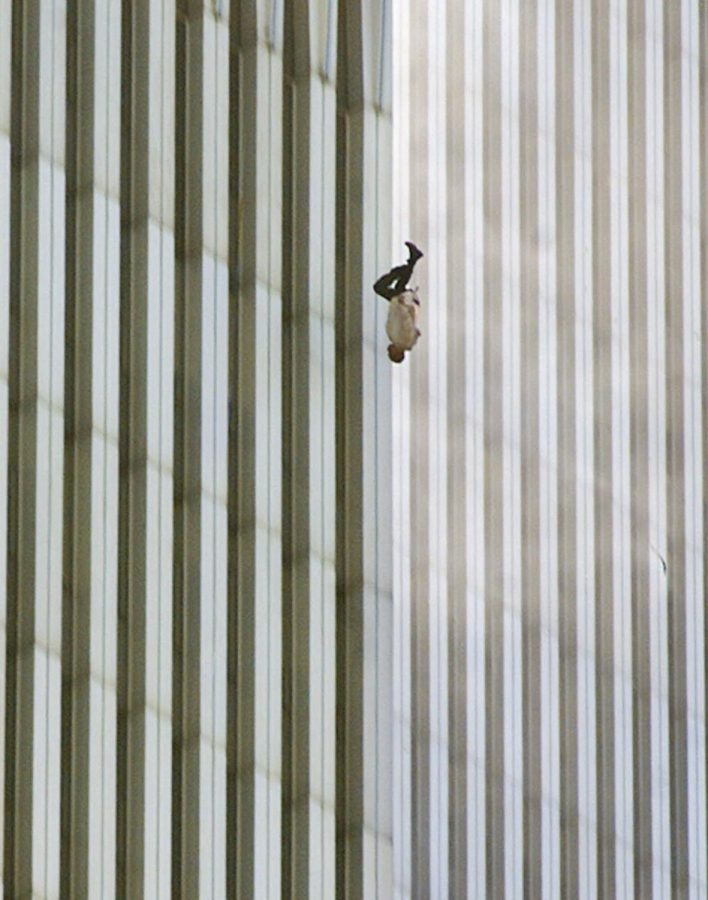
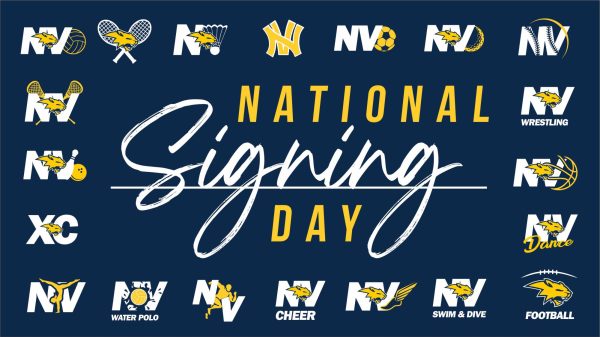
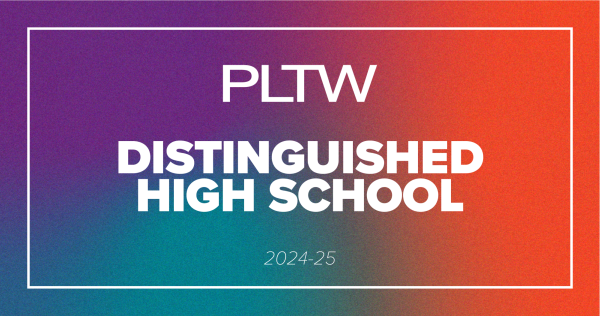
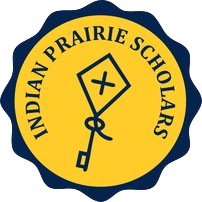
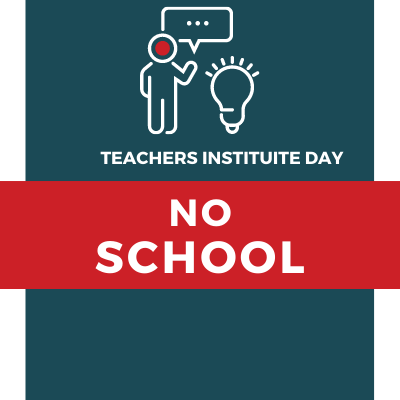
Mandy Kontos • Oct 21, 2020 at 1:55 pm
What a horrible day that was. I was at the University of Iowa and was getting ready for my 8:05 class when the first plane hit. I will never forget that day.
Abby MMS • Sep 12, 2020 at 7:53 pm
This is a moving story and tribute